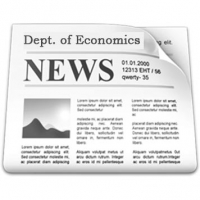

In this globalised business environment, persons who wish to invest in stocks and bonds can do so with relative ease compared to 20 years ago. The global appetite for stock investments has been evolving - as more people see the need for investment, more countries open stock markets.

The exchange rate ended closing day on Tuesday at little less than J$128 to US$1. Coming from approximately $120 to $1 at the start of January 2016, consumers anticipated the rate to plateau at US$125 to J$1 the most.
However, the depreciating trend has continued like a freight train and already the currency has depreciated by more than five per cent since the start of the year.

Industries that are competitive usually provide the best outcomes for society - the lowest possible prices, the highest possible quality, and efficient use of resources (raw material, capital and labour). This efficiency allows the country to get maximum output from its limited resources. Consumers and society at large benefit from competition.

How Valuable Was Our Currency?
Upon receiving Independence from Britain, Jamaica strengthened its currency board system by establishing the Bank of Jamaica. The exchange rate was pegged one to one with the British pound. Annual inflation rate was low and industrial expansion, including a boom in the bauxite industry, encouraged production towards the end of the '60s.